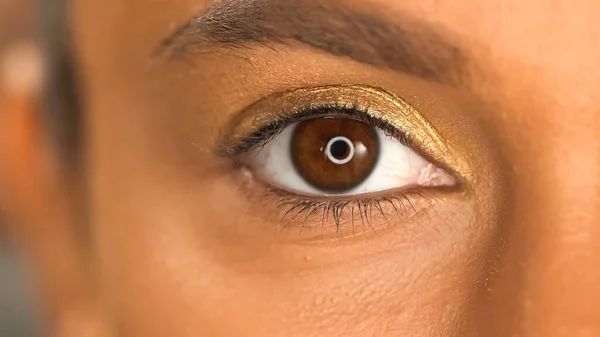Vitamin A, also known as Retinol, is a fat-soluble vitamin. It is essential for several functions in the body like protecting tissues and replacing damaged cells. Vitamin A is also responsible for maintaining vision, immunity, foetal development, skin health, and gene transcription.
Vitamin A comes mainly in two forms: Retinol (animal source) and Provitamin A carotenoid (plant source)
One of the important roles of Vitamin A is maintaining eye health. A lack of Vitamin A can affect the retina, cornea, conjunctiva, and overall eye health.
According to the WHO, Vitamin A Deficiency is the world’s leading preventable cause of childhood blindness. Every year, 250,000 – 500,000 children who are Vitamin A deficient become blind, and half of them die months after losing their sight.
This article explores the signs of Vitamin A Deficiency in eye health and how it can be treated.
Vitamin A’s Role in Eye Health
The eye requires a supply of Vitamin A to enable us to see. In the eye, Vitamin A (Retinol) combines with photoreceptor cells (cones and rods) at the back of the retina. These photoreceptors contain a light-sensitive protein known as Opsin.
Opsin combines with Retinol to form cone opsin and rhodopsin.
Cone opsin is responsible for colored vision in daylight, and rhodopsin is responsible for dim light or night vision.
When we look at an object, cone opsin and rhodopsin create a biochemical reaction that generates an electrical impulse. The optic nerve cells receive this impulse and send it to the brain, and the brain interprets it to us as the visual images we see.
Without an adequate supply of Vitamin A, there would be reduced production of cone opsin and rhodopsin and a disruption of this visual cycle.
This explains the onset symptoms of Vitamin A deficiency–Night blindness. In this condition, a person finds it difficult to see in dim light due to a reduced production of rhodopsin.
Vitamin A Deficiency makes an individual prone to eye infections and vision impairment.
What Causes Vitamin A Deficiency
Vitamin A deficiency can be caused by inadequate dietary intake of Vitamin A.
Children and pregnant women are at a greater risk of this condition since Vitamin A is required largely for growth and development.
Health conditions like liver diseases may also hinder the body from absorbing Vitamin A. This is because vitamin A is stored in the liver. Malfunctioning of the liver may affect the storage and supply of Vitamin A in the body.
Other health conditions that can lessen the body’s absorption of Vitamin A include;
- Zinc and Iron Deficiency
- Cystic fibrosis
- Alcoholism
- Chronic Diarrhoea
- Pancreatic Disorders
How To Recognize Vitamin A Deficiency
A person with Vitamin A Deficiency may experience
- Night blindness
- Impaired colour vision
- Dryness, redness, and discomfort in the eyes: The person usually experiences dryness and thickening of the cornea, a tissue at the front of the eye. This condition is known as Xerophthalmia.
- Blurry or poor vision
- Weak Ocular Immune System: The immunity of the eye health is reduced, making it susceptible to several eye defects, including Conjunctivitis and Cataracts.
Severe cases of Vitamin A Deficiency may lead to:
- Conjunctival Xerosis
- Bitot Spots
- Corneal Xerosis
- Corneal Ulcer
- Corneal Scarring
Children who show any of these defects are likely to die.
How To Prevent And Cure Vitamin A Deficiency
Nutrition
A good way to prevent vitamin A deficiency is by eating foods that are rich in vitamin A. Vitamin A can be obtained from both plants and animals.
Vitamin A (Retinol) is present in animal sources and can be used directly in the body.
Retinol can be found in Liver, Salmon, Egg yolk, and Dairy products.
Vitamin A from plants is in the form of provitamin A carotenoid such as beta carotene.
They are converted to active vitamin A (Retinol) in the body through a metabolic process before they can be used.
Plant sources of vitamin A include carrots, sweet potatoes, spinach, broccoli, mangoes, bell peppers, tomatoes, and pumpkins. There are many amazing foods rich in vitamin A in Nigeria.
Beta carotene is responsible for the green, red, or yellow colouration in fruits and vegetables.
Provitamin A carotenoid is a fat-soluble compound. Hence, it should be consumed with a dietary fat source like olive oil, avocado, or nuts to enhance absorption in the body.
Cooking or heating plant sources may also aid absorption.
Supplements
Taking vitamin A supplements can cure vitamin A Deficiency. However, it is important to consult a medical professional before taking supplements.
Excess vitamin A intake may lead to toxicity. Your health provider would determine if you are vitamin A deficient and whether you should take supplements or boost your vitamin A dietary intake only.
Vitamin A supplements may cure night blindness and dry eye. However, severe eye defects like corneal ulcers and vision loss may not be reversed.
Overview
Vitamin A is vital for eye health. A lack of this essential nutrient may result in night blindness and other eye infections. A Vitamin-A-deficient person may also experience other body symptoms like dry skin and frequent infections due to low immunity.
Vitamin A can be obtained naturally from plants and animals. In cases where a person doesn’t get enough from dietary sources, supplements can be introduced.
Vitamin A toxicity may lead to drowsiness, hair loss, muscle and bone pain, and skin disorders. It is best to consult a medical professional to determine the right dose before taking supplements.




